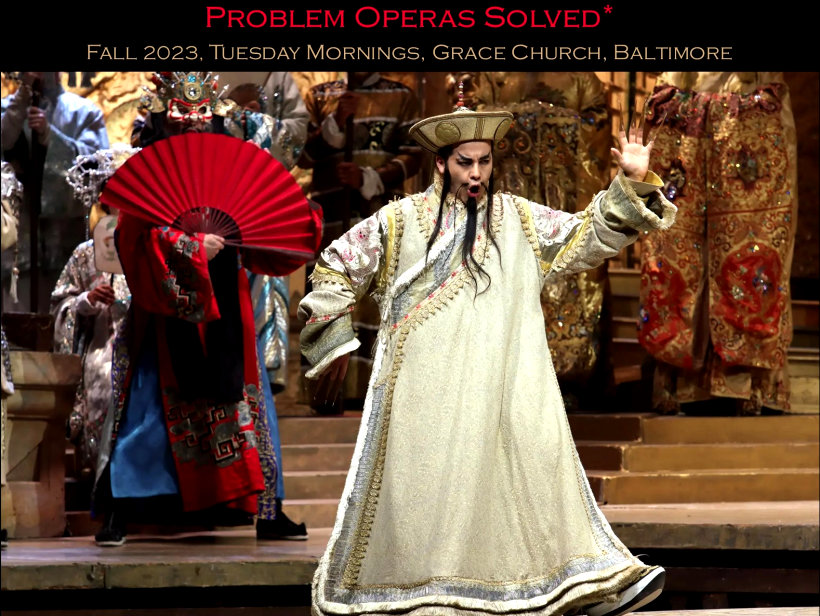| Handout (flat) Handout (folded) Class Script | Return to Index |
Amazingly, the 2019 Tobias Kratzer production from Bayreuth is currently available on YouTube complete,
though who knows for how long? It only has German titles, though. I have cued it to the scenes I actually
played, although any of these links leads to the full production. I have also given an Amazon link for purchase.
The 2012 Barcelona production by Robert Carsen fares much less well. I only have a short clip from the
first scene, plus the spoken introduction (to another version of this production) that I already posted on this
site. I do include an Amazon link, though, for those who want to buy it.
In the MISCELLANEA area, I include the concert performance of the overture that we sampled in class, together with the Bacchanale from the Met production. As a curiosity, I also include a link to the Bacchanal in a Bayreuth production from 1930; it was originally a silent B&W film, but somebody has colorized it and added the relevant sound track! You will also find a trailer/documentary on the version of his Munich production that Romeo Castellucci recently mounted in Salzburg, beginning with those Amazon archers!
As one further curiosity, check out the trailer for a production in Holland by Christof Loy (director of the Capuleti two weeks ago). Although it is narrated in German, with titles in Dutch, I think you will still be swept away by the energy of the music and staging—and also by the intriguing idea of putting a piano onstage and making Tannhäuser a musician, as both he and Richard Wagner were in real life.
| MAIN PRODUCTIONS | |||
| Kratzer, Bayreuth 2019 |
Complete opera
(German titles) — from overture — opening of Act I, scene 1 — Act I, scene 1 / scene 2 — Elisabeth, Act II — Pilgrims, Elisabeth, Wolfram, Act III — final scene Review from New York Times (Joshua Barone) Amazon link to buy DVD |
||
| Carsen, Barcelona 2012 |
Excerpt from Act I, scene 1
(Peter Seiffert, Béatrice Uria-Monzon) Spoken introduction (with Antonio Pappano) Amazon link to buy DVD |
||
| MISCELLANEA | |||
| Overture | Frankfurt Symphony (Alain Altinoglu) | ||
| Bacchanale |
Metropolitan Opera
(Otto Schenk, James Levine) Bayreuth 1930 (colorizd with added sound) |
||
| Trailers |
Romeo Castellucci
(Salzburg remounting of Munich production) Christof Loy (Holland) |
||


















